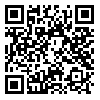Volume 19, Issue 2 (Summer 2024)
Salmand: Iranian Journal of Ageing 2024, 19(2): 190-207 |
Back to browse issues page
Download citation:
BibTeX | RIS | EndNote | Medlars | ProCite | Reference Manager | RefWorks
Send citation to:



BibTeX | RIS | EndNote | Medlars | ProCite | Reference Manager | RefWorks
Send citation to:
Tajvar M, Jahanbani A, Atashbahar O, Ashoorkhani M. Effectiveness of Online Self-care Education in Preventing Falls at Home Among Older Adults: A Quasi-experimental Study. Salmand: Iranian Journal of Ageing 2024; 19 (2) :190-207
URL: http://salmandj.uswr.ac.ir/article-1-2565-en.html
URL: http://salmandj.uswr.ac.ir/article-1-2565-en.html
1- Department of Health Management, Policy and Economics, School of Public Health, Tehran University of Medical Sciences, Tehran, Iran.
2- Department of Family and Population Health, Deputy of Health, Tehran University of Medical Sciences, Tehran, Iran.
3- Department of Public Health, Sirjan School of Medical Sciences, Sirjan, Iran.
4- Department of Health Education and Promotion, School of Public Health, Tehran University of Medical Sciences, Tehran, Iran. ,ashoorkhani@tums.ac.ir
2- Department of Family and Population Health, Deputy of Health, Tehran University of Medical Sciences, Tehran, Iran.
3- Department of Public Health, Sirjan School of Medical Sciences, Sirjan, Iran.
4- Department of Health Education and Promotion, School of Public Health, Tehran University of Medical Sciences, Tehran, Iran. ,
Abstract: (3930 Views)
Objectives Falling can have significant negative consequences on the health and quality of life of older adults. This study aims to assess the effect of online self-care education on the knowledge, attitude and practice of older adults in preventing falls at home.
Methods & Materials This is a quasi-experimental study with a pre-test/post-test/follow-up design that was conducted on 120 people aged ≥65 years referring to comprehensive health centers in the south of Tehran, Iran, in 2021. A researcher-made questionnaire was completed by the participants before, immediately after, and three months after the intervention. The intervention was a virtual self-care educational program for fall prevention at home. Data analysis was done in SPSS software, version 26 using descriptive statistics (such as Mean±SD) and analytical tests including independent t-test, Mann-Whitney U test, and chi-square test.
Results About 22% of the elderly had a history of falling in the past year. Immediately after the intervention, the mean scores of knowledge, attitude, and practice were 18.39±2.86, 14.99±2.51, and 13.76±3.1, respectively, which were significantly higher than the pre-test scores (P<0.001). Three months after the intervention, the mean scores of knowledge, attitude, and practice were 18.18±1.14, 14.91±1.57, and 9.06±2.78, respectively, which were significantly higher than the pre-test scores (P<0.001).
Conclusion Online self-care education for fall prevention at home can significantly increase the knowledge, attitude, and practice of the elderly and reduce the risk of falling.
Methods & Materials This is a quasi-experimental study with a pre-test/post-test/follow-up design that was conducted on 120 people aged ≥65 years referring to comprehensive health centers in the south of Tehran, Iran, in 2021. A researcher-made questionnaire was completed by the participants before, immediately after, and three months after the intervention. The intervention was a virtual self-care educational program for fall prevention at home. Data analysis was done in SPSS software, version 26 using descriptive statistics (such as Mean±SD) and analytical tests including independent t-test, Mann-Whitney U test, and chi-square test.
Results About 22% of the elderly had a history of falling in the past year. Immediately after the intervention, the mean scores of knowledge, attitude, and practice were 18.39±2.86, 14.99±2.51, and 13.76±3.1, respectively, which were significantly higher than the pre-test scores (P<0.001). Three months after the intervention, the mean scores of knowledge, attitude, and practice were 18.18±1.14, 14.91±1.57, and 9.06±2.78, respectively, which were significantly higher than the pre-test scores (P<0.001).
Conclusion Online self-care education for fall prevention at home can significantly increase the knowledge, attitude, and practice of the elderly and reduce the risk of falling.
Type of Study: Research |
Subject:
Geriatric
Received: 2023/01/23 | Accepted: 2023/08/01 | Published: 2024/07/01
Received: 2023/01/23 | Accepted: 2023/08/01 | Published: 2024/07/01
Send email to the article author
| Rights and permissions | |
 |
This work is licensed under a Creative Commons Attribution-NonCommercial 4.0 International License. |








